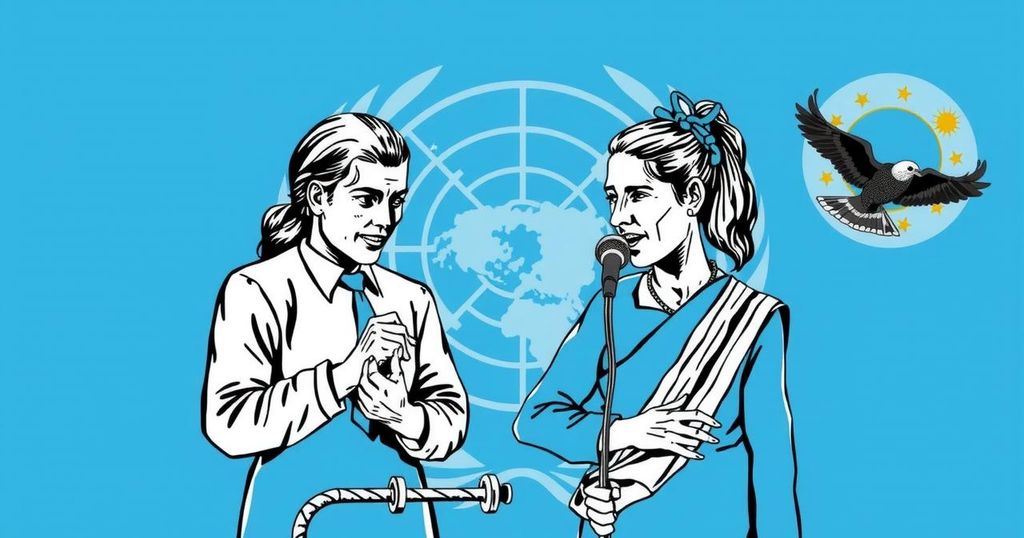Argentina’s recent UN vote against a resolution condemning gender violence shocked observers, with President Milei facing criticism for aligning the nation with extreme right-wing ideologies. His administration’s dismissal of diplomatic officials opposing his radical stance raises concerns about the future of social achievements in the country.
In a surprising diplomatic move, Argentina became the only nation to vote against a United Nations resolution aimed at condemning violence against women and girls, a position typically associated with countries such as Iran and North Korea. This decision is viewed as part of President Javier Milei’s radical shift in foreign policy since he took office. Milei’s actions, including withdrawing Argentina from certain international agreements, reflect a broader alignment with more extreme right-wing ideologies. Critics from multiple political perspectives voiced their disapproval, labeling the vote a disgrace, suggesting it undermines years of previous social progress in Argentina. Furthermore, Milei’s controversial stance on domestic and foreign issues has led to the dismissal of key diplomatic figures who opposed his agenda, resulting in a notable shift away from Argentina’s historically progressive stance. His administration has faced backlash for its rejection of international commitments designed to protect women’s rights and combat climate change. The sentiments expressed by political opposition underscore fears regarding the erosion of civil rights as Milei pursues his libertarian vision.
Argentina’s recent change in its voting pattern at the United Nations reflects an unprecedented evolution in its diplomatic approach, distinct from its previous progressive stances. Traditionally, Argentina has been at the forefront of advocating for human rights, particularly those concerning gender equality. Since assuming office, President Javier Milei has repositioned the country’s foreign policies to align more closely with radical right-wing ideologies, a shift that includes abandoning support for global initiatives aimed at combating gender violence and environmental issues. This radical transformation has intrigued and shocked many observers, leading to questions about the future of Argentina’s domestic and international commitments.
In summary, Argentina’s recent vote against ending gender violence at the UN, led by President Milei, signifies a profound departure from its historically progressive policies toward a more radical, right-wing stance. The backlash from various political factions highlights deep concerns regarding the implications of such a shift, particularly in relation to women’s rights and climate issues. As Milei continues to enforce his vision, resulting tensions within both domestic and international arenas suggest a contentious path ahead for Argentine governance.
Original Source: www.seattletimes.com







